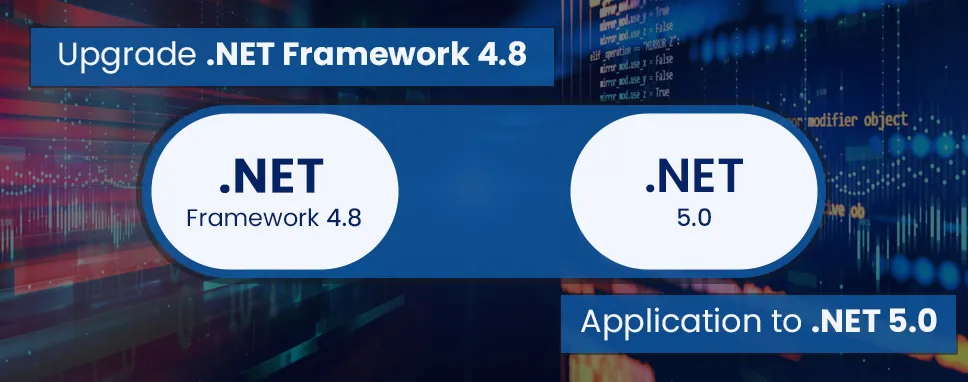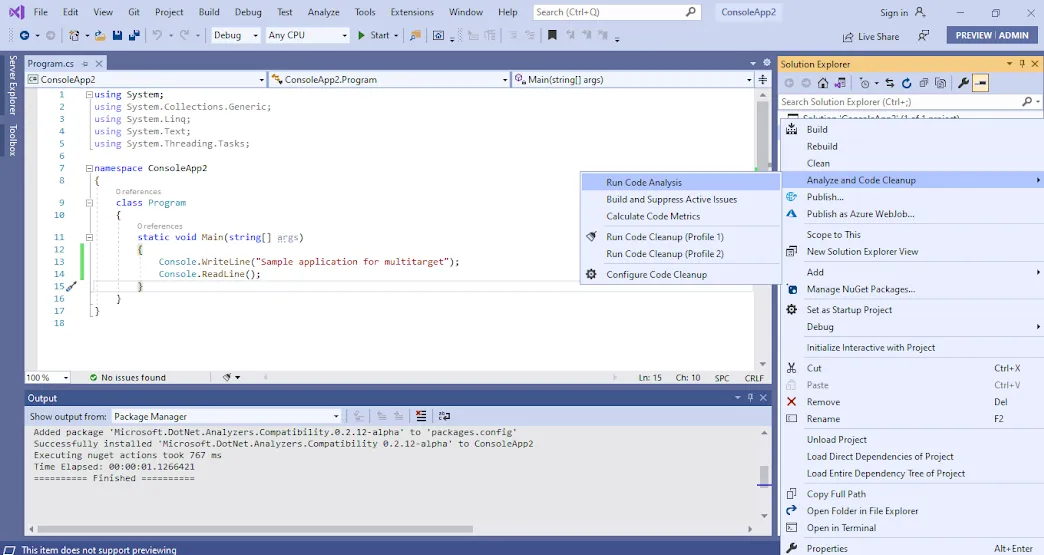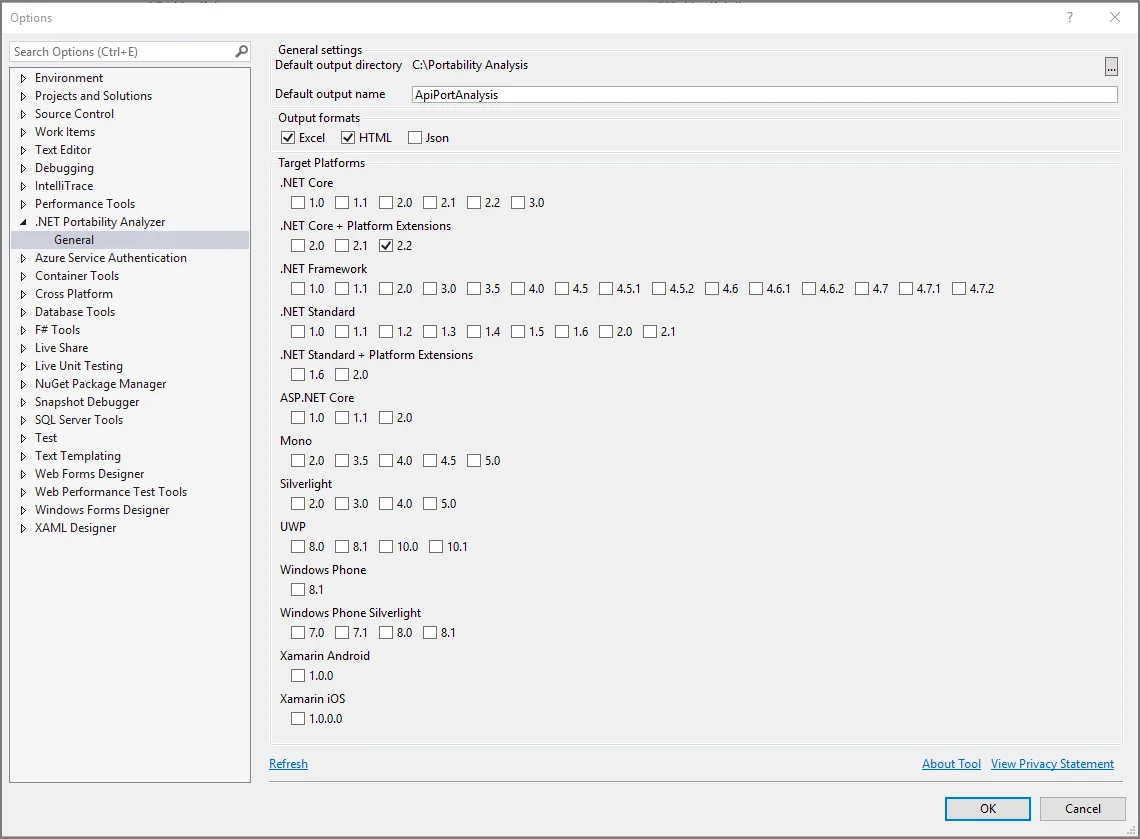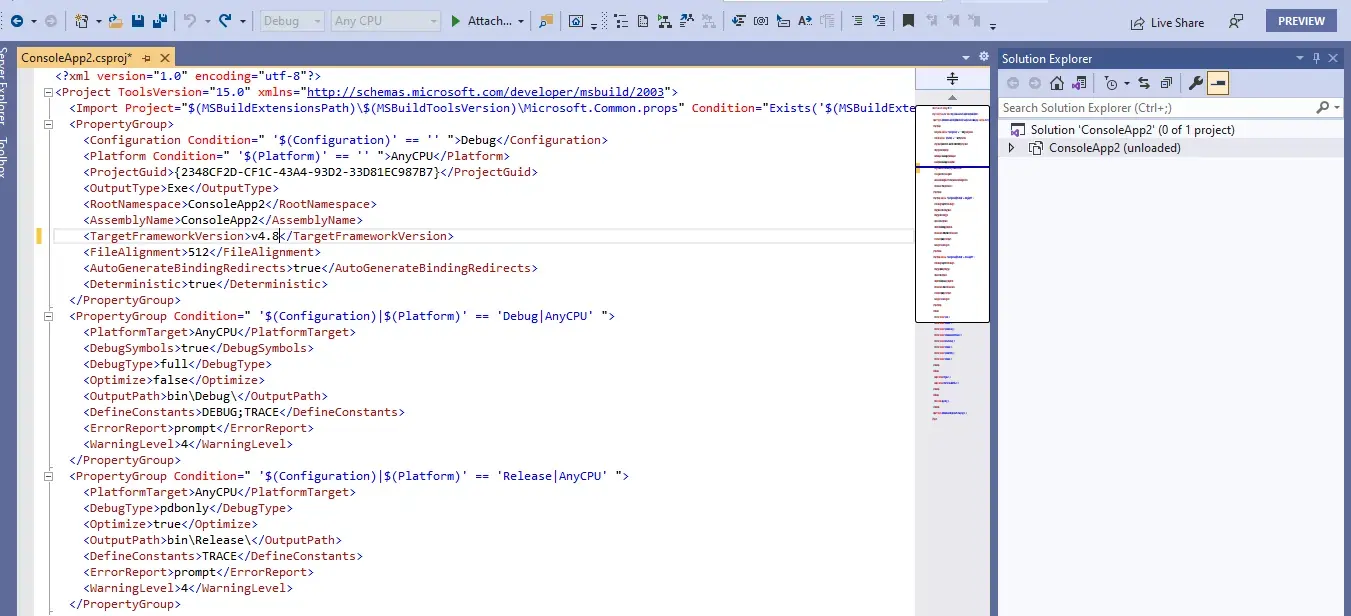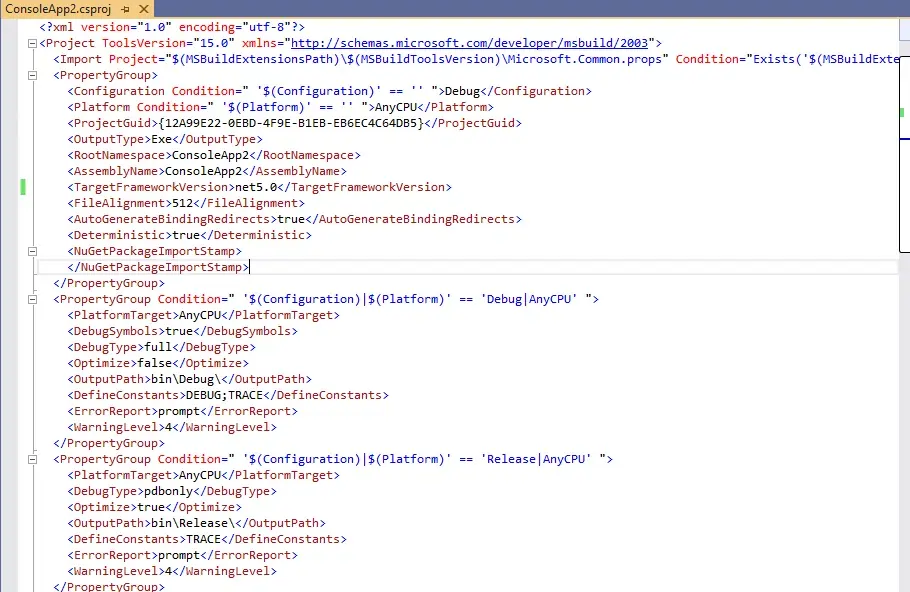Before we start let's discuss why we need to upgrade .net framework 4.8 to .net 5.0.
.NET Framework is a software programming framework. It supporting languages like C#, F#, VB.NET, etc. Since then there have been multiple releases available and also many are successful. The last version 4.8 is the last feature version. I don't think so there will not be any feature upgrades of .NET Framework are releases . The reason for not any further new update in .NET Framework because of invention and success in .NET Core.
.NET 5.0 is an open-source and cross platform of .NET framework. .NET framework is only supported in Windows OS, whereas .NET 5.0 is supported in every possible platform. .NET core tops the most admired place in Framework, Libraries, and tools category.










